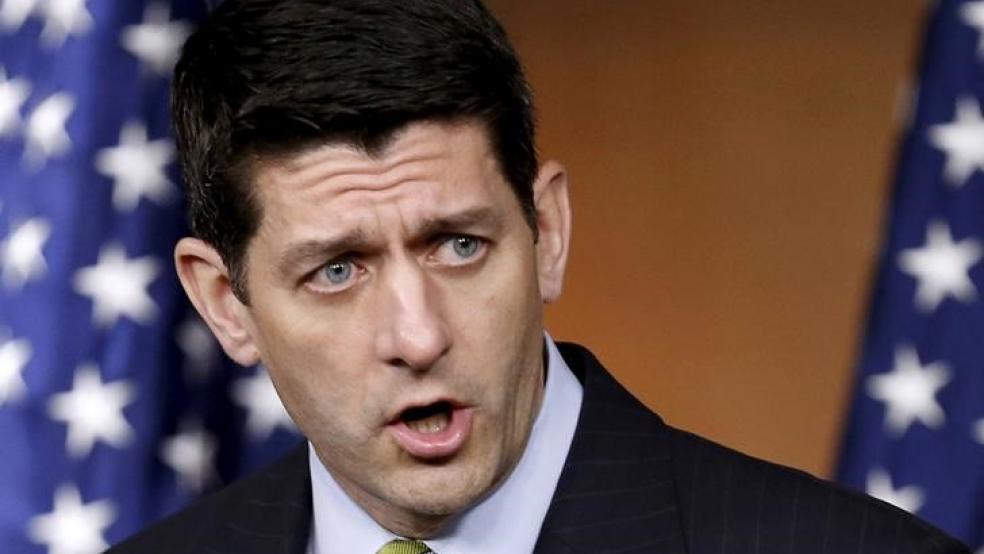Capitol Hill lawmakers return from their latest recess to face two looming fiscal dilemmas: how to fund the federal government and what to do to boost the country’s response to the Zika virus.
Right before breaking for the Memorial Day holiday, an energy and water spending bill went down in defeat on the House floor after Democrats succeeded in attaching an amendment prohibiting federal contractors from discriminating on the basis of sexual orientation or gender identity.
Related: The GOP Chained Itself to Trump. Here’s What that Means
That resulted in many Republicans voting against the underlying bill. The series of events was an unexpected consequence of the push by House Speaker Paul Ryan (R-WI) to return the chamber to “regular order,” an unrestricted amendment process that many rank-and-file members, especially conservatives in the House Freedom Caucus, clamored for so they could have more input into the legislative process.
There’s nothing to stop Democrats from offering the same amendment or another on a hot button political issue such as immigration that would be anathema to the GOP, especially in an election year.
The standoff could scuttle the entire appropriations process and force Ryan to begin contemplating a catch-all omnibus bill, a move that would be loathed by conservatives.
Ryan would probably prefer avoiding that option as well. With government funding set to expire shortly before Election Day, a short-term spending resolution and an eventual omnibus, put together during an already contentious lame duck session of Congress, would no doubt be drawn into the boiling cauldron of presidential politics.
Related: After Endorsing Trump, Paul Ryan Decries ‘Anger’ and ‘Division’ in Politics
While the House tries to unsnarl itself, the Senate appropriations committee has unanimously approved eight of the 12 annual spending bills, primarily by avoiding so-called “poison pill” amendments and sticking to the funding levels set by last year’s bipartisan budget agreement.
Where the upper chamber is running into trouble, though, is what to do with a proposed $2 billion to help combat the Zika virus.
Before adjourning, the Senate approved a $1.1 billion, bipartisan package; the House approved $622 million bill that faces a veto threat from the White House. Both measures are well below the $1.9 billion President Obama has requested to try to tackle to mosquito-borne virus.
Senate Minority Leader Harry Reid (D-NV) chastised Republicans for not hammering out a compromise before leaving town and vowed that he would force a vote on a larger, $2 billion package as soon as lawmakers are back into session.
Related: Is It Time to Cancel the Rio Olympics? Health Experts Say Zika Risk Is Too High
The Centers for Disease Control and Prevention says there are more than 300 pregnant women in U.S. who have been exposed to Zika, which is known to cause birth defects. Earlier this week, USA Today reported that a third Zika-infected infant was born with the severe birth defect called microcephaly.
Depending on how deeply Reid and other Democrats dig in their heels, the Senate’s appropriations process could go off of the rails. Even a week-long deviation could have greater consequences down the road, considering there are less than 60 days left on the congressional calendar.





